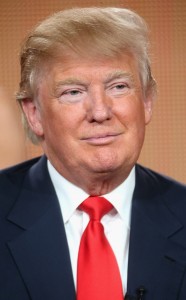
Republican presidential candidate Donald Trump has tapped lawyer A.B. Culvahouse Jr., a longtime Washington fixture, to help vet his vice presidential picks, according to people familiar with the campaign.
The role for Culvahouse, who visited Trump Tower in Manhattan earlier Wednesday for a meeting with Trump’s aides, is a familiar one. He ran the vetting process for Republican presidential nominee John McCain in 2008 that ultimately selected Sarah Palin.
Trump has said publicly that he’s relying on multiple people to recommend vice presidential picks, including campaign manager Corey Lewandowski and one-time rival Ben Carson, though neither has the legal qualifications that are essential to the vetting process.
Trump, who is expected to announce a running mate at the GOP convention in July, has narrowed his shortlist to five or six candidates with “deep political resumes,” he told the Associated Press last week. Newt Gingrich, the former House speaker, is being considered, people close to the campaign said. Governor Chris Christie of New Jersey has not been ruled out, Trump has said, though a poll today showed that such a ticket would be deeply unpopular in the state.
From 1987 to 1989, Culvahouse served as White House counsel to President Ronald Reagan, helping to handle the failed Supreme Court nomination of Robert Bork. He is currently a lawyer in the Washington, D.C. law firm O’Melveny & Myers, and did not respond to a request for comment. The Trump campaign also did not respond to requests for comment.
During five elections, Culvahouse has both helped potential running mates deal with the intrusive vetting process and served as the vetting interrogator. He has a reputation for being very deliberate in establishing the credentials of potential candidates, and their pitfalls.
Writing in the Wall Street Journal in 2012, he described how deep the vetting dive goes, demanding the potential picks hand over their “tax returns, medical histories, financial statements, court records” while answering very personal questions about “infidelity, sexual harassment, discrimination, plagiarism, alcohol or drug addiction, delinquent taxes, credit history, and use of government positions or resources for personal benefit.”
Culvahouse wrote that his team started with two dozen candidates, none of whom knew that McCain had selected them for consideration.
END

Be the first to comment